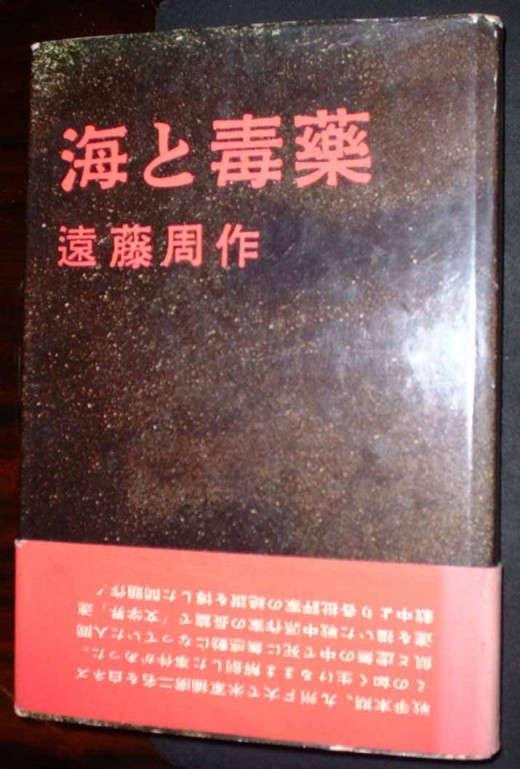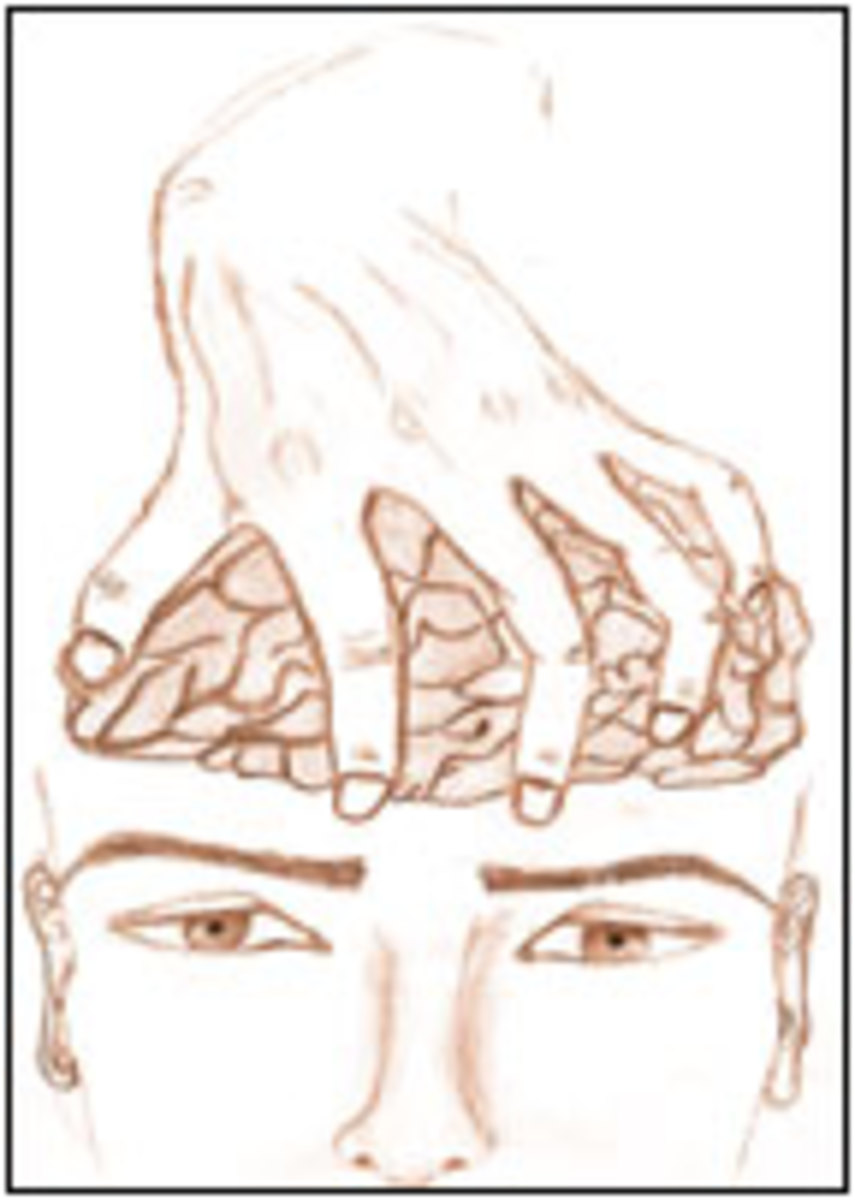The Absurdity of Doctor Suguro: Medical Murder and the Nature of the Absurd in The Sea and Poison


The Absurdity of Doctor Suguro and Human Sacrifice: an Explication of the Relevance of the Absurd, as Defined by Albert Camus, in Endo’s The Sea and Poison
Albert Camus, in his renowned and prolonged essay, The Myth of Sisyphus, delineates in depth the presence of absurdity in man as well as in the world. Camus gives innumerable definitions of absurdity, including notions such as an absence of profound reason for living, the necessity of man combined with the world to create absurd circumstances, and the presence of a moral code and reasoning coupled with man not conforming to that said moral code and reasoning. These aspects of absurdity are all found in Shusaku Endo’s The Sea and Poison, particularly in the actions and circumstances of the character of Doctor Suguro.
Camus speaks of the absurdity of suicide as “the absence of any profound reason for living” (6). He also specifies that the “divorce between man and his life...is properly the feeling of absurdity” (6). In the beginning of The Sea and Poison, even though Suguro does not commit suicide, his cold, clinical personality reveals that all of his mirth and self’s sense of reason to live is absent, which is detected by his demeanor, as revealed by the narrator: “There was a cold, metallic chillness to that touch. More than that, there was an impersonal, unfeeling competency to it which seemed to deal with me not as a patient but as some sort of laboratory specimen” (20). By the closing pages of The Sea and Poison, which takes place before the opening section of the book, it is apparent Suguro, through the procedures on the prisoners, which he was unable to escape, underwent a psychological transformation which numbed him to the point of alienating Suguro from himself. Even though Suguro was not driven to suicide, the hardening of his heart and spirit are present, due to the pressures inflicted by the medical procedure he endured to perform. These external pressures divorced Suguro from himself, and produced the sense of absurdity which is present in the paradox that Suguro, a healer of the body, in the past was forced to kill American prisoners in the name of medicine, and now takes no pleasure in the clinical service which he performs. In this later period of Suguro’s life it is observed that a “horde of irrationals has sprung up and surrounds him until his ultimate end. In his recovered and now studied lucidity, the feeling of the absurd becomes clear and definite” (Camus 21). Only in the aftermath of the irrational realities which Suguro endured, which is purposely revealed in the later pages of The Sea and Poison, can the reader fully understand the absurdity of Suguro’s existence.
Camus also postulates the following, which is also evident in The Sea and Poison: “The absurd depends as much on man as on the world. For the moment it is all that links them together. It binds one to the other as only hatred can weld two creatures together” (21). This notion is displayed in the likelihood of absurdity to prevail when rational man is forced into irrational circumstances in the world, as seen in Suguro’s medical career. The opposite can also produce the prevalence of absurdity, that being an irrational man’s actions when confronted with a rational situation; but this notion is not relevant. The first narrator of The Sea and Poison, after being intrigued by Suguro’s precision with the pneumothorax needle, conducts research of Suguro’s past and finds that he was involved in the merciless vivisections of eight American prisoners during the War:
In general the purpose of the experiments had been to obtain such information as how much blood a man could lose and remain alive, how much salt water in place of blood could safely be injected into a man’s veins, and up to what point a man could survive the excision of lung tissue. (27)
Suguro receives a prison term for his involvement in the procedures. Suguro’s involvement in the general practice of medical procedures is not in the realm of the absurd, because the information reaped from the experiment itself could prove useful in the future of medical science; at the same time, the nature and circumstances of the medical procedure, namely the use of foreign subjects and the outcome of certain death, reaches to the limits of the absurd. In summary, to either remove the absurd circumstances of human sacrifice in the name of medical progress and promotion of individuals, or to remove the absurdity of Suguro’s involvement in the procedure, in result the episode would lose the essence of absurdity. Yet, because of the confluence of Suguro with the procedures which involve human sacrifice, the flame of absurdity is ignited, to burn indefinitely.
The greatest question which must be asked concerning the level of absurdity that is found in The Sea and Poison is this: to what extent does morality and reasoning play a role in the life of Suguro and his involvement in the medical procedures performed on the American prisoners? Suguro, as a human, is defined as absurd in character, if Camus‘ definition stands as the hypothetical truth: “What, in fact, is the absurd man? ...he prefers his courage and his reasoning. The first teaches him to live without appeal and to get along with what he has; the second informs him of his limits” (66). Suguro, with his statement of self-prescribed guilt in the closing pages of The Sea and Poison, reveals his preference of justice and moral reasoning, even if it condemns himself. Suguro speaks to Toda concerning the vivisections: “‘Still... some day, we’re going to have to answer for it,’ said Suguro, leaning close suddenly and whispering. ‘That’s for sure. It’s certain that we’re going to have to answer for it.’” (166). The reader learns before this statement, that Suguro did spent a short term in prison for his involvement in the procedures. In this sense, Camus was correct in stating that: “The absurd does not liberate; it binds” (67). The absurdity of Suguro’s going through with performing the procedures overrules any moral reasoning or obligations he held against performing them. In support of Camus‘ connection of the absurd man to his reasoning: “‘Everything is permitted‘ does not mean that nothing is forbidden. The absurd merely confers an equivalence on the consequences of those actions. It does not recommend crime...but it restores to remorse its futility‘ (67). Considering this aspect of the absurd, Suguro’s remorse is futile after the procedure reaches fruition and the damage is done, and his actions become absurd at the moment when what is permitted (and we can see everything is permitted in his environment of medical practice) crosses over into what is forbidden (in the eyes of the judicial system). In this sense, the absurd can be found in the character and actions of Suguro, as well as in the nature and circumstances of the medical procedures which incriminate him.
There are few uncanny occurrences found in Endo’s The Sea and Poison. The various narrators’ retellings are mainly objective, crisply realistic, and as coldly clinical as the harsh reality of the wartime settings in which the events take place. Camus’ definitions of the absurd, namely the absence of profound reason for living, the necessity of man combined with the world to create absurd circumstances, and the presence of a moral code and reasoning coupled with man not conforming to that said moral code and reasoning, are all found in the story. It becomes apparent that human sacrifice in the medical practice, whether in times of war or peace, will generate one thousand or more modes of absurdity to expose.
Works Cited
Camus, Albert. The Myth of Sisyphus and Other Essays.
Trans. Justin O’Brien. New York: Random House, 1991.
Endo, Shusaku. The Sea and Poison. Trans. Michael
Gallagher. New York: New Directions, 1992.







